Toilets
Two locals are turning human poop into value
The entrepreneurs are creating proper sanitization for poor countries
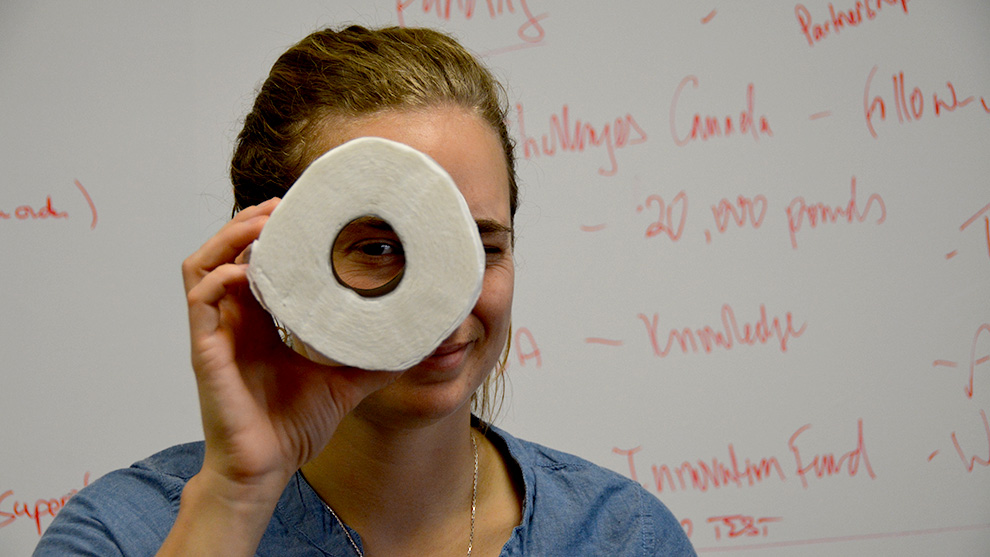
caption
Hana Nelson is the co-founder of Aerosan Toilets.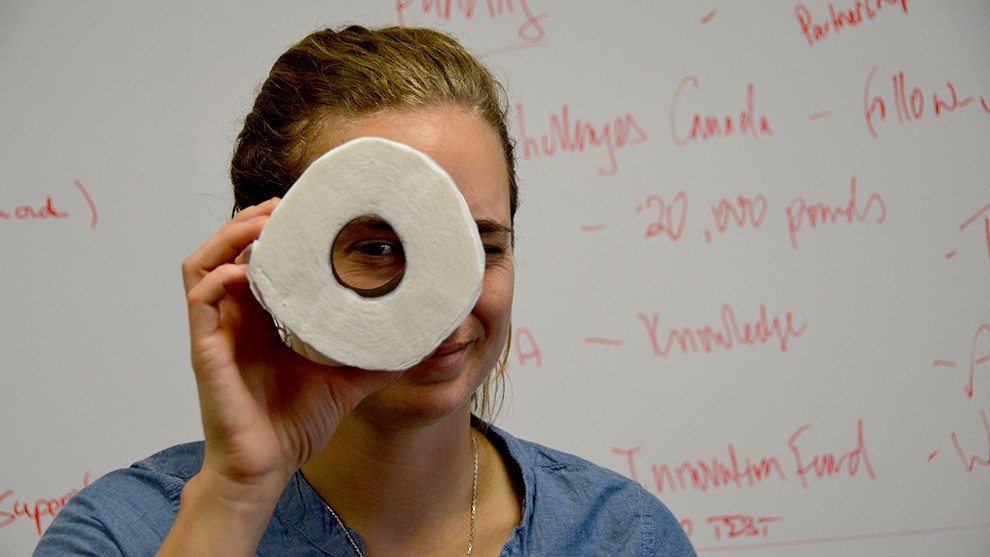
caption
Hana Nelson is one of the co-founders of Aerosan Toilets.Hana Nelson and Alex Lynch deal with a lot of crap — literally.
They’re sanitizing human feces in developing countries and, in some cases, turning poop into cooking gas.
For five years the duo has been heading up Aerosan Toilets, a Halifax-based organization aimed at helping poor countries get proper toilets.
“When half of the people in the emergency (in developing countries) that die are children under five because they’re dying of diarrhea, it’s a pretty difficult problem but super basic and we don’t talk about it,” said Nelson.
The problem is sanitation, and according to Aerosan Toilets, 2.6 billion people don’t have access to proper toilet sanitization.
Nelson, 30, and Lynch, 28, started their venture five years ago. They’ve been building toilets in poor communities around the world. So far they’ve lent a hand to communities in Kenya, Nepal and Haiti. Lynch is the project manager and has a master’s degree in integrated water resources management. Nelson has a degree in biology and a master’s in agroecology.
Lynch got home about a week ago from Nepal and he’s already been sick — twice. He says handwashing isn’t big in Nepal, which raises the risk of catching diseases.
Some people Lynch spoke to didn’t know their water wasn’t being treated.
“It has to be done,” said Lynch. “There needs to be a push, internationally, to address this problem. It’s a massive global problem and it’s something that we take for granted here in North America.”
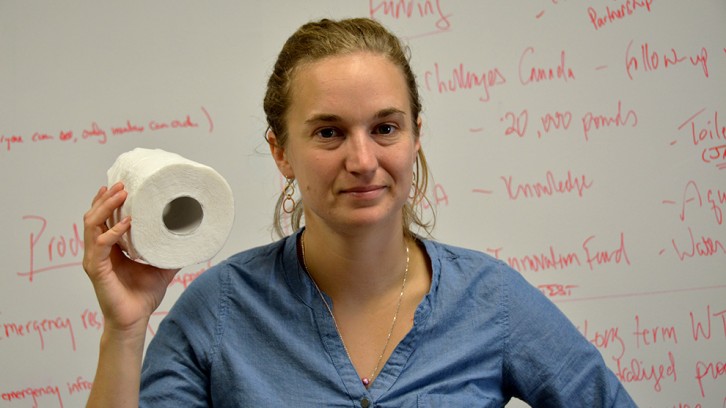
caption
With a $350 pricetag to make, Aerosan Toilets have been dubbed “ecosan toilets.”An uncomfy North America
Westerners don’t like dealing with feces, says Nelson.
“There’s got to be value,” she said. “That’s one thing I think a lot of North Americans don’t really grasp because we don’t think about it, but there’s so much value in human waste.”
They’ve received some help from the Gates Foundation — that’s Bill and Melinda Gates — in the form of a grant of $314,813 in November 2014.
There’s one problem: donations aren’t enough.
“Our focus in Nepal is really building businesses around toilets,” said Lynch.
They’re starting at a public access level, meaning they’re building toilets where there aren’t any. Most homes in Kathmandu have indoor toilets that are connected to underground pipes, but all the toilet water is discharged into the river.
The Aerosan toilets aren’t regular toilets. They sit on a big bin that receives all the feces and urine. They’re dubbed “ecosan toilets” because they’re eco-friendly and they sanitize feces. They cost $350.
The ones in Nepal are an adaptation of the toilets built in Haiti. The great thing about poop in Nepal is that Aerosan is generating biogas from it. Basically, poop is being turned into cooking gas.
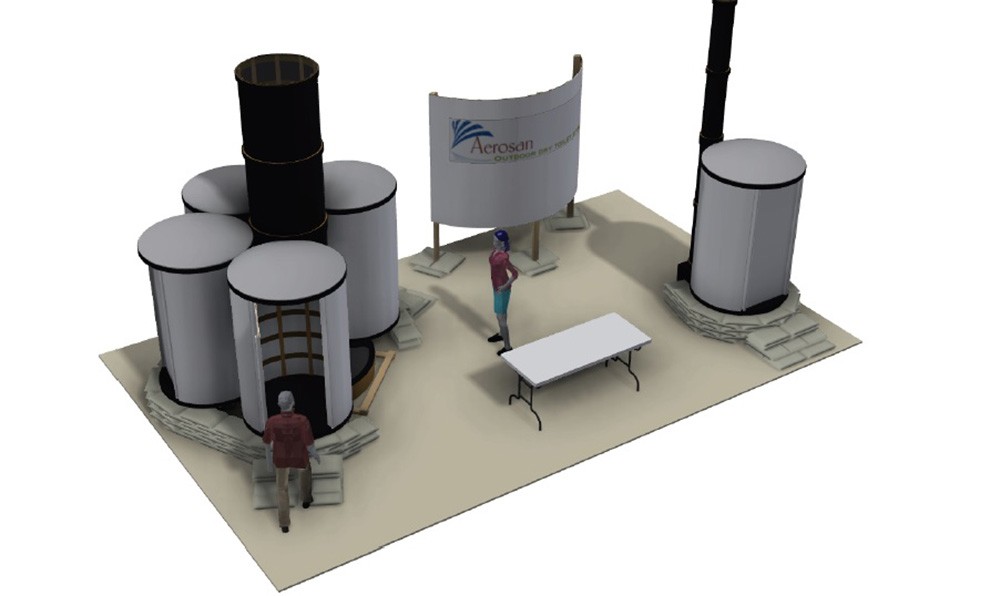
caption
Aerosan slightly reworked its Haiti design in Asia.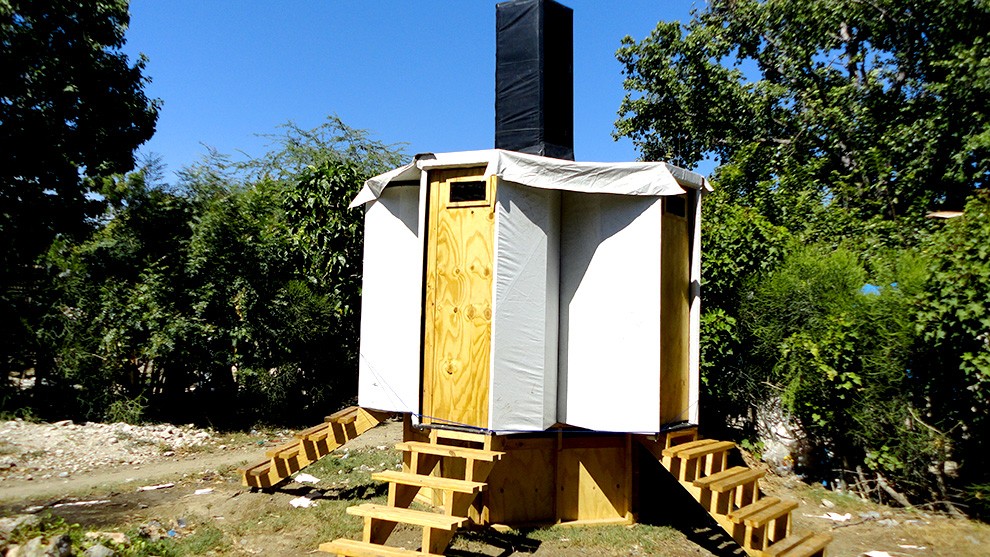
caption
The toilets Aerosan created in Haiti.“Haiti is a pretty different beast,” Nelson said.
Pit latrines, toilets that are just holes in the ground, can be good. They can also be bad. It all depends on what part of the world you’re in. In Haiti, they’re bad because cholera is an all-too-familiar disease in that country.
If Nelson were to dig a pit latrine in the Haiti slum she visited five years ago, she would’ve dug into the groundwater — the slum’s drinking water. Cité Soleil in Port-au-Prince is also a high flood zone, so if the water levels rise, feces mixes in.
Nelson says compost needs water, carbon, nitrogen and biological organisms. When that all mashes together, the organisms create heat and kill off diseases.
“Putting them all together, we were creating enough mass that composting was happening,” Nelson said.
The next step for Aerosan Toilets is to make these toilets a business, so it’s looking for a business partner.
Nelson says the government needs to help as well.
“There’s a failure of the government sector. Until there’s more investment from the public sector, it’s a difficult enterprise to be in.”


M
Michael Creagen